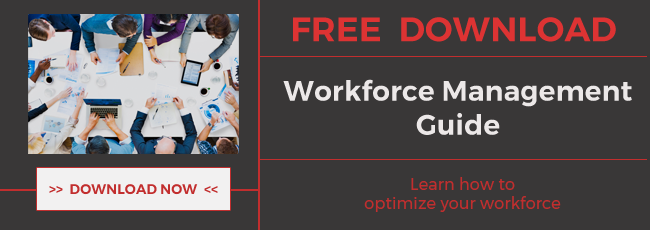Managing employees invariably requires delegating tasks beyond a worker's regular job duties. However, a seemingly simple function like delegation is often problematic for too many managers.

Management involves more than simply making sure everyone is doing what they're "supposed" to be doing. It also involves occasionally needing to delegate specific tasks or projects to individual (or multiple) employees that do not normally fall within their assigned duties.
Simply put, delegation means giving accountability to someone else to act as your representative. As a manager, you can best achieve results by delegating work to your staff. While most tasks and duties are already documented in a job description, or position agreement, delegating work doesn’t end with just those functions.
There are often additional tasks and work that must be done, and that shouldn't always fall to a manager. In order to effectively facilitate this, managers and employees need a clear process for delegating work. An established process enables managers to entrust their employees with the work needs to be done. Conversely, it allows the employees to trust they’ll have all the information (and resources) they need to accomplish the work.
Simply Telling Isn't Enough
The problem for too many organizations is that delegating tasks or projects only entails a manager "telling" an employee what needs to be done. Another issue is that delegation often either falls on the wrong employee, or the same employee. The old saying, "If you want something done, give it to a busy person." may have some truth to it, but it's not an effective delegation practice.
Too often, tasks that have been delegated only by verbal request end up being done incompletely or not quite correctly. So how can a manager implement an effective delegation process?
There are four essential steps for delegating effectively:
1. Identify the Task You Need to Delegate and Who You’ll Delegate It To.
In most business environments almost anything can be delegated except for the following:
• The overall work of someone else's position (unless that person is leaving)
• Specific work or results of someone else’s position (unless you have their agreement)
• The work or results that have been delegated to you that you’ve also agreed to
When you have a task to delegate, determine which position - not employee - is most appropriate for the task. It may be that the position you’ve identified is filled by an employee who does not report to you. You will then need to coordinate with that person’s manager to properly delegate the work you need done.
If there is more than one person in the same position, delegate your task based on current workload, capability, and time requirements. Again, avoid delegating to the same person again and again. This habit can work against you over time and create issues with that employee.
2. Put the Delegated Task in Writing Along With a Due Date
After determining who to delegate your task, it is important to write it down with as much detail and specificity as possible. This can be with a standardized "delegation form" or a simple email. The key is to have something that you and your employee(s) can refer back to when needed.
Writing out the delegated task with details and a deadline will:
• Allow you to communicate clearly what you need
• Minimize any misinterpretation of what is requested
• Create a record of the delegation request for reference
• Avoid confusion or misunderstanding
• Clarify what your employee is agreeing to
There are three items that are absolute “musts” for your delegation request:
- The result you want
- The standards that must be met
- The due date and time
While your employee can usually determine the actual work needed to produce the required result, there are times when you may need provide a step-by-step plan.
The due date and time is critical. As a manager, you must be clear and specific about when you want the task completed. An employee cannot be accountable for being "late" with a result if they weren’t given a clear due date.
State the due date as follows: “Monday, July 12th by 3 p.m.” as opposed to something like “in a few days” or “in a couple of weeks.” It is especially important to avoid using "ASAP" as that is inherently open to interpretation.
There may be an understandable reluctance to commit to a specific due date because of uncertainty about how long the task might take. Use your best judgment and involve your employee's input, as well. If it turns out a task will take longer, an agreed upon process for providing status updates, or reporting loops, and re-setting due dates can be established.
3. When Possible, Discuss the Delegated Task With the Employee In Person
It's always a good idea to discuss the delegation with your employee. Even if you use some type of delegation form, a brief face-to-face conversation will reinforce both the details of the task and any sense of urgency or priority.
In addition, a discussion of the delegation provides an opportunity to:
• Clarify the overall objective of the assignment
• Discuss the feasibility of the due date
• Clarify the impact of this task to the employee’s other work responsibilities, and re-prioritize, if needed
• Address any difficult or challenging aspects of the task for the employee
• Allow the employee to ask questions
4. Get Clear Agreement From Your Employee
The last step is to get the employee’s agreement to take on the delegated task. Without an explicit agreement from the employee you cannot be assured of a commitment on their part. And, without a clear commitment, you have no gurantee of a result.
There can be a number of reasons why employees might want to decline taking on the task. This could be because they think they lack the time due to their other accountabilities. Or employees may feel they lack the ability to do the job properly. By developing and using a delegation agreement form you can provide employees with a forum to communicate their concerns.
You’ll find that this process allows employees to cooperate with their managers to determine how results will be achieved. It will lead to more agreement, more commitment, and more timely results throughout your company. In addition, it will lead to more satisfying working relationships.
Review and Follow Up Consistently
As a manager, you often find yourself walking a figurative tightrope by having to avoid under-regulating or over-regulating your direct reports. You want to avoid leaving your staff "in the dark" yet you also want to avoid unnecessary meetings. This is especially true with delegation.
It's important to review and follow up with your employees after a delegated task or project is completed. Ask them for their feedback to help you analyze the effectiveness of how you regulate their work. Try to determine what works well for them and what, if anything, you can do better or differently.
Effective delegation can go along way towards transforming both how you work, and how effectively your organization operates as a whole. And you will be building stronger relationships with your staff.
A Partner for Your HR Workforce Management
Managers have growing roles that include recruiting, hiring, managing and continually training employees. In addition, they are responsible for other functions such as employee development, payroll management, employee records compliance, and managing employee benefits.
Outsourcing is increasingly becoming a cost-effective and strategic option. Accuchex can help you in managing your HR needs, payroll processes, and staying on top of compliance demands.
Get your Free Download: Payroll Outsourcing Guide to help you make an informed decision or call Accuchex Payroll Management Services at 877-422-2824.




